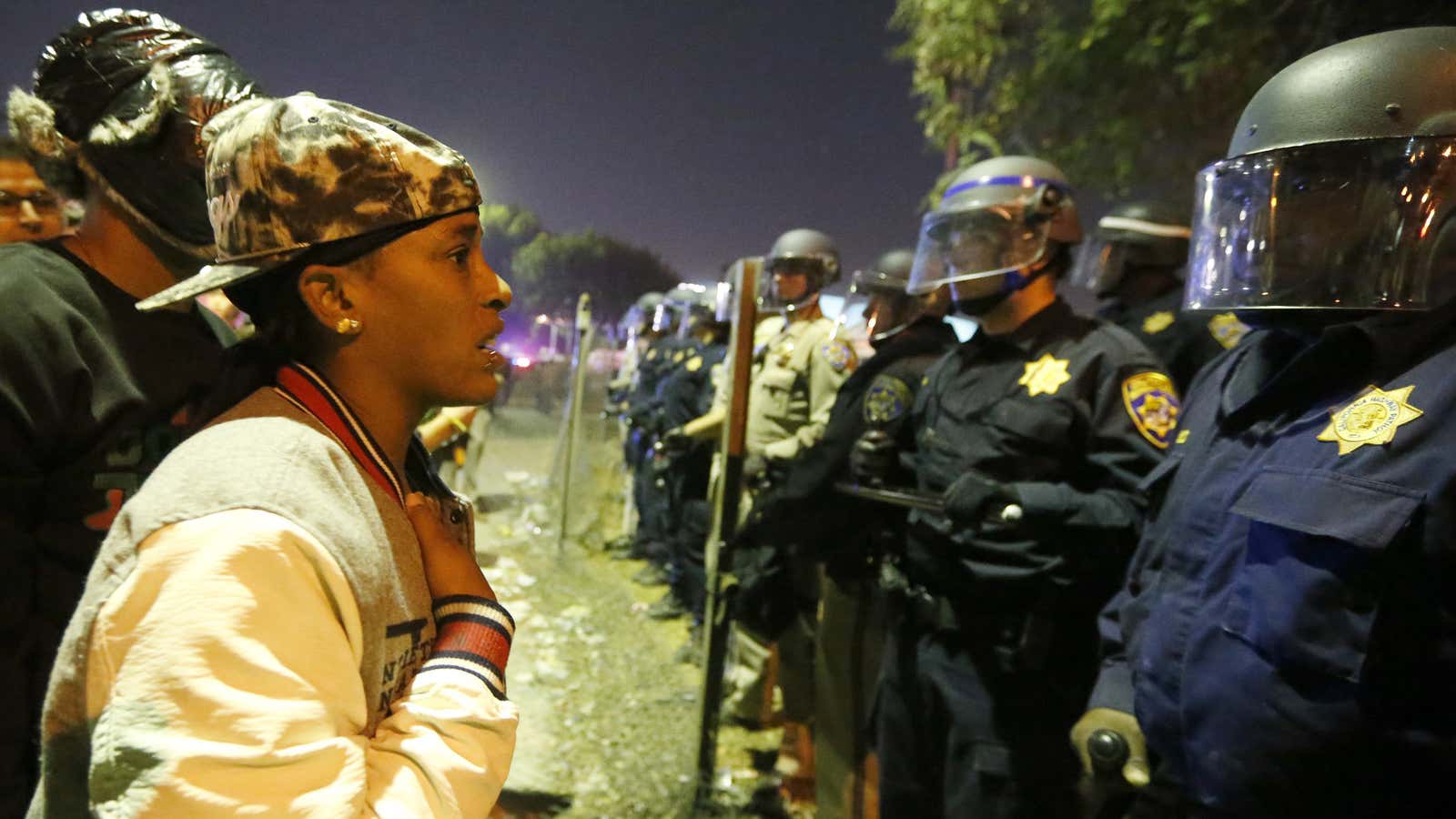The Los Angeles Police Department can’t find any evidence of “biased policing”—or racial profiling—among 1,356 allegations made against its officers, according to the Los Angeles Police Commission (pdf).
The Police Commission acts like the LAPD’s board of directors, and its Dec. 15 report examines how the police department handled allegations of racial profiling over three years from 2012 to 2014. Police Commission president Matt Johnson told reporters, “I don’t think that anybody believes that there are actually no incidents of biased policing. The problem is we don’t have an effective way of really adjudicating the issue.”
Proving racial bias is extraordinarily difficult and requires data that can show an officer’s pattern of behavior, several people told the Los Angeles Times.
The LAPD, like many police departments in the US, has faced fresh scrutiny after the deaths of Michael Brown and Eric Garner sparked a national conversation about race and police violence. In March, a group of LAPD officers—along with representatives of police departments across the US—attended a workshop on implicit bias and how it can come into play when officers make, say, a traffic stop.
In October, California governor Jerry Brown signed legislation that requires all state law enforcement agencies to document and publicize the ethnic breakdown of all interactions with civilians. In the LA Times’ report of the bill, Lt. Steve James, president of the Long Beach Police Officers Association, stated, “There is no racial profiling. There just isn’t.”
